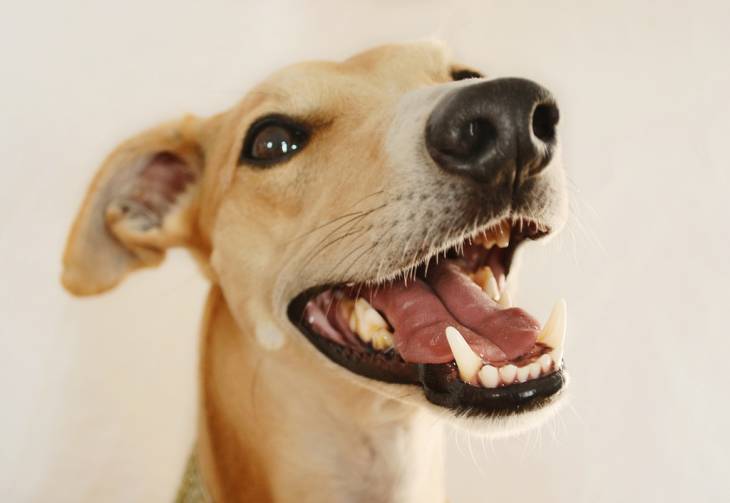How Many Teeth Does a Dog Have? (The Basics on a Dental Topic)
Chances are, the only time you think of your dog’s teeth is if he bares them or it's time for some grooming. But it’s important to know a few basics about your buddy’s choppers. For example, do you know how many teeth he has? Well, wonder no more.
Your Dog’s Teeth by the Numbers
An adult dog will have a maximum of 42 teeth. Some canines may have fewer teeth than this due to a wide range of reasons, from the shape of their muzzle to the occasional lost tooth. It’s important to take care of these choppers as part of the grooming process, lest they become rotten and your dog’s breath becomes overwhelmingly stinky.
Do Dogs’ Teeth have any Similarities to Human Teeth?
Even though a dog will have about six to ten more teeth than humans (depending on whether you want to count wisdom teeth), there are some ways in which a dog’s set of teeth mirrors a human’s set of teeth. For instance, puppies also have baby teeth - 28 to be specific, which is eight more than what we have. These baby teeth will start getting replaced by permanent teeth after four months.
Just like humans, a set of dog’s teeth are split up into four categories: canines; incisors; premolars; and molars. Each of these sets has a specific job to execute, from holding things securely in the mouth to sufficiently tearing meat off of a bone. Unlike civilized humans, these teeth double as a dog’s primary defense mechanism.
Another similarity that we share with our pooches is that dogs cannot re-grow teeth as an adult. This is a prevailing myth in some circles, but once a tooth is lost, it’s lost for good. That is why it is so important to make tooth maintenance an important component of dog ownership.
Taking Care of Your Dog’s Teeth

Your dog’s teeth should last a lifetime, just like yours should. In order to make good on this, it is important that you keep a watchful eye on your four-legged friend’s choppers. If you don’t, your pooch can experience a wide host of issues, from tooth loss to more serious forms of dental-related diseases.
It is especially important that you remain proactive in checking your dog's teeth because dogs rarely exhibit signs of dental pain. Dogs, in general, have evolved to hide chronic dental pain because their animal instinct translates exposing such discomfort as a sign of weakness. If you don't routinely check your dog’s mouth, you will never know if he is suffering from, say, a cracked tooth or periodontal disease.
Of course, that doesn’t mean that you won’t be able to pick up on some telling clues that may indicate an issue. If you notice unusual physical behaviors like difficulty picking up food or favoring one side of the mouth to chew, there could be an issue afoot. Also, if your pooch has bad breath, he could be in need of more than a good teeth cleaning.
The best way to protect your dog’s teeth from serious issues is to provide him with the same type of care that you give your own teeth. This includes brushing his teeth every day and bringing him in for a full oral exam every year. It may seem like a lot of work, but it will save your buddy a lot of grief in the long run.
There are also a few dog-centric things you can do to safeguard your pooch's teeth. Hard, rubbery chew toys or thin, bendable rawhide bones will help keep your buddy's teeth in tip-top shape. There are also dog foods on the market specifically geared toward helping your dog's teeth look their best.
It’s a Dirty Job - But You Have to Do It!
Each one of your dog's 42 teeth is your responsibility as a dog owner to maintain. Getting inside your pooch's mouth with a toothbrush may not be the most pleasant task to carry out, especially if your dog occasionally tries to rebuff you, but it is a necessary action to protect your dog's overall health. Besides, you take the time to care about your own teeth; why wouldn't you do the same for your furry buddy?

